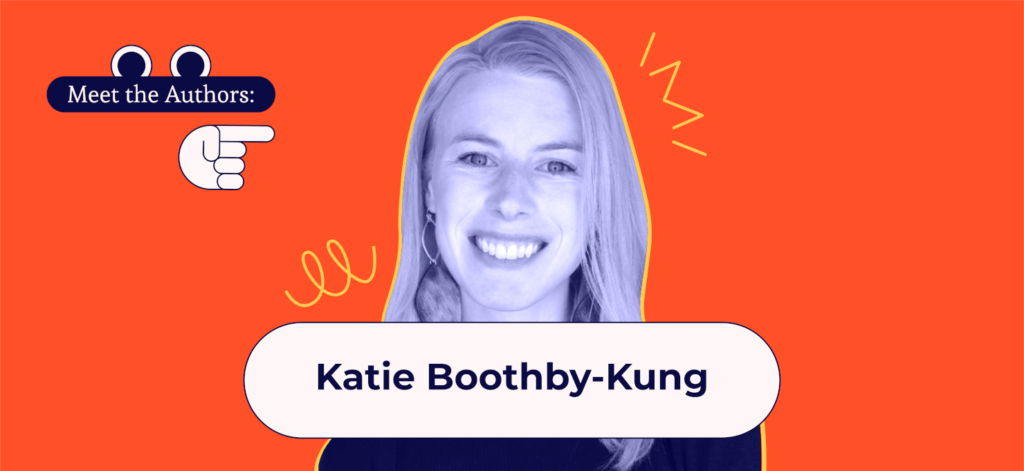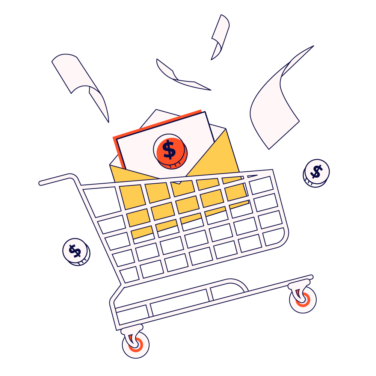In this series, we’re getting to know the authors of The Sustainable Ecommerce Handbook, our ebook on building green and lean online stores, available to download for free directly from The Ecomm Manager.
Today we’re introducing you to Katie Boothby-Kung, a senior manager of social impact at Shopify. By working closely with social impact businesses around the world, she is able to build educational tools and provide platform support to launch and grow successful social enterprises. Katie is also the founder of an eco-conscious business herself: 100% of the profits of bath and skincare company Copper Root Collective are going directly to water projects in Zambia.
Here Katie explains how Shopify defines sustainability, tells us about the key social impact trends she’s seeing, stresses the importance of sharing your sustainability with your customers, and recommends ways you too can start making a difference.
How do you define social impact?
There isn't a universal definition for social impact and social entrepreneurship yet. Sustainability is often only seen as environmental, while social impact tends to be understood to only refer to human rights, but at Shopify we use the term sustainability to encompass both.
A social enterprise is a business that is focusing on one of these two areas to help the planet or make working conditions and economic rights better for people around the world. It's like a Venn diagram with environmental action on one side and positive human rights action on the other. The sweet spot is in the middle – that's the gold standard for sustainability. When you are building a business, your journey isn’t going to begin in the middle of the Venn diagram where everything is perfect. Your goal is to positively impact the environment and also the people that you work with from the very beginning of your supply chain all the way to your employee base and your customers.
How did you get into this field?
It was really by accident. I've always been interested in social entrepreneurship. When I started at Shopify in 2016, we were all encouraged to start our own stores. The idea of Copper Root Collective was already there, it was born out of my university degree. I had recently spent a month in Southern Africa and visited the village that I now support, so there couldn’t have been a better time to start a business.
Then my boss at Shopify – Brady Paron – and I began talking about social impact and social entrepreneurship and how Shopify is positioned so perfectly to support these types of businesses. Eventually, the social impact team was born, and I was very fortunate to become a part of it to lead all of the social enterprise initiatives at Shopify.
What are the main challenges the ecommerce industry is faced with when it comes to its impact on the planet?
Ecommerce businesses just by definition are shipping. We're not going to stop shipping goods to people. They’re not all of a sudden going to vaporize into the air and then appear at someone's doorstep. That’s a big challenge.
Packaging is another one. I do laugh a little bit when people say their products are packageless and they're running a direct-to-consumer online business. They still have to have some kind of labeling, especially if they’re in the food and beauty business! We have a fabulous partner called EcoEnclose, who hosted a one-hour webinar on sustainable packaging best practices. I really recommend watching the video because sustainable packaging can be quite complicated.
You also need to make conscious decisions around offsetting your shipping and finding more environmentally-friendly shipping methods. It's not ideal but the reality is that slower shipping methods – freight rather than air – are usually also more environmentally-friendly.
What kind of social impact trends are you seeing at Shopify?
The idea of social impact is definitely a trend in itself. With the pandemic, people really started to vote with their dollars, finding brands that align with their values – be it supporting a
local hospital, donating to a food bank, or just building things that are environmentally-friendly.
I don't want to say it's a trend because I don't think it's going away but we certainly saw an uptick in these types of businesses, either well-established companies shifting some of their business models to be more sustainable or new ones that aim to solve some of the challenges during the pandemic.
Merchants have certainly been asking us about packaging, too. That's top of mind for many: how do they source sustainable types of packaging and where do they even start.
What’s your chapter about?
It’s about how to conduct a sustainability storytelling audit. For the past three years, I've been directly working with merchants on social entrepreneurship and social impact and how it appears on their online store.
Time and time again, I would be talking to a merchant and they'd be so excited to tell me their story about the social impact that their business was having on the world, and I would make them realize that the only person that knows about it is me because I have the privilege of working at Shopify and get to call them. How are their customers going to figure this out?
There’s definitely a disconnect: People are building amazing, innovative social enterprises and do a lot of good but they’re not talking about it. So I started collaborating with our store optimization team, which conducts actual store audits on speed and how collections are displayed, to work out how we can run an audit for this kind of storytelling.
Your impact story should be a journey throughout your whole online store because there's so many touch points. It’s like going into different rooms. Some customers might come to your store through a different entry point and they're not seeing your homepage or your About page to learn more about your brand. They're going straight to your product page, and there's no way for them to know about your social impact. You need to constantly display and share your efforts on these top three pages, but in a way that’s relevant to each individual page and the journey that your customer is on. It leads to more conversions, and at Shopify we’re seeing the science of that.
How can ecommerce managers get started? What are the first steps that they can take to make sure their online store is more sustainable?
First, they need to understand what the company does that is sustainable. Dive in with a few members of your team to make sure everyone fully understands that journey, so that you can effectively tell your sustainability story on your online store.
If there's a gap in internal communications between, say, the founder, the ecommerce manager and the sustainability team, and they're not telling those stories together, then you're not going to see that sustainability story being properly told on the online store.
Ecommerce managers should definitely do some digging to really be aware of all of the touch points that are related to sustainability, so that they can weave that storyline throughout everything and understand the impact of each product. That's going to take a bit of time and might mean hiring a third party to help you but you need to go as granular as you possibly can. Vague statements aren't converting because people aren't really trusting them. People want to know the details. If you don’t share them, then people won’t buy into your story.
Are there any resources that you'd like to recommend?
Shopify’s Compass courses are amazing. Even if you’re not making the decisions on packaging yourself, the language and how to talk about sustainability is certainly helpful. There's a discussion about circularity, for example. Understanding that whole model and how your business can contribute to a circular economy could be really valuable. I’ve also hosted a 30-minute master class on how to start and scale a social enterprise, which covers all the facets that go into running a sustainable business.
And I’ve been giving audits to some of our merchants through the programs that we run at Shopify. If that's something of interest to any ecommerce manager, I'm certainly happy to discuss it!
Learn more about all our authors and download The Sustainable Ecommerce Handbook for free!


